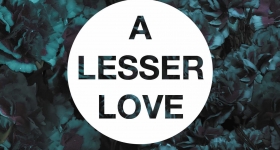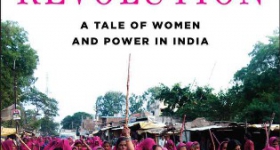ASK ANY ANTHOLOGY editor the rationale behind organizing a new collection of work and you’ll get a wide and complex range of answers: Market need, showcasing a new generation of voices, political imperatives, reshaping the canon. Victoria Chang’s Asian American Poetry: The Next Generation, M. Evelina Galang’s Screaming Monkeys: Critiques of Asian American Images, and Nick Carbo and Eileen Tabios’s Pinoy Poetics are three very different literary anthologies that have recently hit the market. In an era in which the new crop of literary anthologies is edited by practicing writers and cultural activists for the communities in which these editors participate, the books prove that The Norton Anthologies no longer hold poetic authority.
Poetic Controversy
Taking its cue from anthologies like Jim Daniels and Edward Costanzo’s American Poetry: The Next Generation and David Lehman’s Best American Poetry series, Victoria Chang’s Asian American Poetry: The Next Generation (University of Illinois Press) canonizes the work of 28 poets under the age of 35, including Cathy Park Hong, Mong Lan, Tina Chang, Skrikanth Reddy and Paisley Rekdal—all of whom Chang describes as the “new generation of Asian American poets.” To find work for The Next Generation, Chang combed through dozens of literary journals from which she created a master list of poets to solicit work. She then mailed out approximately 60 queries to “friends, friends of friends, editors, professors, and anyone that would respond” in order to get recommendations. In total, she considered the work of nearly 140 poets for her project, ultimately narrowing her selection to 28 contributors, the vast majority of whom have MFAs or PhDs and have some involvement with academia.
In her book, Chang writes of her desire to assemble a collection of work departing from a “recognizable Asian voice.” But while poets such as Reginald Gibbons and David Baker have publicly praised the collection, The Next Generation also drew fierce criticism from the Asian American literary community for its closed editorial approach and its assertion of authority. Noticeably absent from the anthology were poets outside of the academy, as well as radically experimental and more innovative writers. Another common criticism was that Chang, a Stanford University business school graduate who exists on the fringes of the poetry world and who has yet to release her own first collection of poetry, did not have an MFA herself.
Artistic Inclusion
Winner of the 2004 Gustavus Myers Outstanding Book Award and ForeWord Magazine’s Gold Award for Anthologies, Screaming Monkeys: Critiques of Asian American Images (Coffee House Press) quickly caught the spotlight for its ambitiousness, vision and range. The anthology stemmed from a call that editor M. Evelina Galang put out to local writers, scholars and artists to respond to a Milwaukee Magazine article in which a writer reviewing a Filipino restaurant referred to the owner’s child as a “rambunctious little monkey”.
Assembled by a team of editors under the leadership of Galang, Screaming Monkeys is organized into thematic sections (including
a final section on “transcendence,” or works that both depart from and transcend a “recognizable Asian voice”) and compiles historical documents and timelines, media quotes and news headlines alongside
fiction, non-fiction, poetry, art and commercial images of Asians as represented by mainstream media.
The collection is diverse in its range of writing styles and voice, and across generations, pairing established writers such as Marilyn Chin, Walter Lew and Garrett Hongo alongside emerging writers such as Ricco Villanueva Siasoco, S.L. Kim and Brian Komei Dempster. Loosely inserted throughout the book are artworks by Asian American artists, which lack a clear editorial context or focus and more often than not distract from the textual works. But while Screaming Monkeys presents older work that has been previously anthologized or published (such as Li-Young Lee’s famous poem “The Cleaving”), the project of this 500-plus page collection was clearly to cast a wide as net as possible in gathering together a range of voices and to reframe these works in the context of the Asian American experience.
Veteran Editors
San Francisco Bay Area poet Eileen Tabios, who has also edited several anthologies, says that “expanding previously narrow categorizations of Asian American poetry” and “addressing certain ethnicities that previously were not as fully presented in Asian American texts” are her main motivations for doing so. Pinoy Poetics: A Collection of Autobiographical and Critical Essays on Filipino and Filipino American Poetics (Meritage Press) co-edited by Tabios and Nick Carbo, fits the bill. Both are long-time editors of Asian American literature: Tabios, who also founded Meritage Press, edited Black Lightning (Asian American Writers Workshop) and Babaylan: An Anthology of Filipina and Filipina American Writers (Aunt Lute Press). Carbo’s latest editorial project, co-edited with performance poet Marlon Esguerra, is Son of the Dragon: Literary Dialogues with Asian America Men, an anthology of writings on Asian American male identity which grew out of a discussion of the infamous Details “Gay or Asian” piece.
Pinoy Poetics collects the work of 40 international Filipino English-language poets. The poets speak for themselves, touching on issues of poetic craft, identity and practice, approaching the call with a variety of strategies: Vince Gotera conducts a self-interview, Paolo Javier plays with typography and the visual presentation of text in his anti-narrative essay “Marginalia,” Oakland, CA-based poet Barbara Jane Reyes discusses the process of writing and revising her long poem “Anthropologic.” The collection also includes a literary timeline marking major events in the history of Filipino writing, complied by Carbo. As Tabios aims to do in her editing work—and as all three of these publications prove—literary anthologies are a unique contribution to the ongoing discussion that is Asian American literature, reflecting specific political and editorial sensibilities. 
Writer Shin Yu Pai is an artist-in-residence at the University of Texas at Dallas and teaches poetry at Southern Methodist University.









Comments